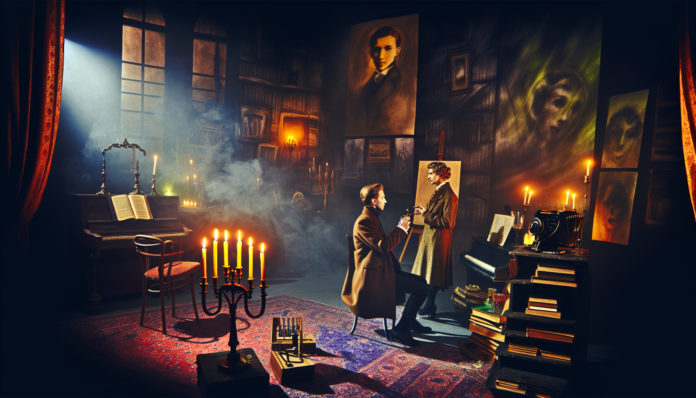Introduction
Jean Cocteau, the French poet, playwright, and filmmaker, is often remembered for his extraordinary contributions to the arts in the early 20th century. However, his personal life was equally dramatic and complex, marked by relationships that scandalized and captivated his contemporaries. In a time when homosexuality was not only stigmatized but also illegal in many parts of Europe, Cocteau’s open relationships with men—including his passionate affair with actor Jean Marais—defied societal norms and raised eyebrows. The scandal surrounding his romantic liaisons not only influenced his artistic creations but also left an indelible mark on modern perceptions of love and identity.
The Scandal
Cocteau’s scandalous romances gained notoriety during the 1920s—a period when Paris was a hub of avant-garde art and culture, yet still steeped in conservative values regarding sexuality. His affair with Marais, which began in 1937, was particularly tumultuous. The affair was characterized by intense passion and heartbreak, culminating in a love triangle that included Cocteau’s close friend, the famous poet Paul Éluard.
- Key Events:
- Cocteau and Marais met during a casting call for Cocteau’s film Beauty and the Beast.
- Their relationship thrived within the decadent circles of Paris, where both men were embraced by a vibrant artistic community.
The intensity of their relationship was often reflected in Cocteau’s artwork, where themes of obsession and longing emerged prominently. For example, his novel Les Enfants Terribles explored the destructive nature of close relationships, mirroring the turbulence in his own life.
- Contemporary Reactions:
- Critics and society were divided; admiration for Cocteau’s art clashed with condemnation of his openly queer relationships. The French writer André Gide famously remarked, “It is the essence of love to leave us incomplete,” highlighting the emotional chaos surrounding Cocteau’s life.
Moral and Cultural Analysis
The public’s reaction to Cocteau’s romantic escapades ranged from fascination to condemnation. While many appreciated his innovations in the art world, there remained a pervasive discomfort regarding his sexuality. Homosexuality was often shrouded in secrecy and shame, with many of Cocteau’s contemporaries living double lives—balancing public personas and private desires.
-
Social Consequences:
- Cocteau’s boldness resulted in both reverence and ostracism. While he gained patronage from influential figures like the actress Marlene Dietrich, he also faced ridicule in some literary circles.
- Modern Perspective:
- Today, Cocteau’s relationships would be viewed through a lens of empowerment rather than shame. The rise of LGBTQ+ rights has fostered an environment where love—regardless of gender—is celebrated. Social media would amplify his voice, potentially making him a queer icon and advocate.
In a world evolving toward inclusivity, Cocteau’s narrative serves as a poignant reminder of the struggles faced in the pursuit of love against societal odds. His life and work continue to resonate, illustrating the transformative power of love and the art it inspires, regardless of societal norms.

